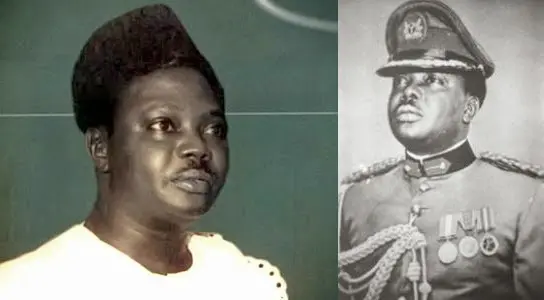The Murtala Muhammed Foundation is one of the leading not-for-profit organizations driving development in Nigeria. The Foundation has provided national leadership and demonstrated commitment to national development and social change anchored on accountability, professionalism, innovation, and people-centered programming.
The level of success achieved by the Foundation over the 21 years of its establishment will not be complete when the annals of the Foundation are espoused without mention being made of the impeccable vision and leadership of Dr. Aisha Muhammed-Oyebode, the co-founder and chief executive officer.
Dr. Aisha Oyebode is credited with being the herald of the Foundation; she has nurtured the foundation for 21 years to become a key player in driving national development with impacts across the African continents.
The Foundation is now firmly established as a strong voice in governance, empowerment, and social solutions. The success stories of the Foundation draw from the versatile experience and skills of Dr. Aisha Muhammed-Oyebode.
The Foundation is founded on the ideals of the late General Murtala Muhammed, who within 198 days as Head of State of Nigeria (1975-76) introduced some key reforms and policies that made a mark in governance in Nigeria. Today, the Foundation has grown and is working toward achieving the vision encapsulated in its inception.
General Murtala Muhammed, GCFR [November 8, 1938 – February 13, 1976]
He attended several course outside the shores of Nigeria as an officer. Murtala trained at the Royal Military Academy in Teshi, Ghana, Sandhurst Military Academy, England, and School of Signals in Catterick, England. In Sandhurst, England, the Commandant adjudged him as “most intelligent cadet who has worked hard and well to produce an above average result. He is above average in leadership and organizing ability”. After his training, he was commissioned as a second lieutenant in 1961 and assigned to the Nigerian Army Signals that same year.
He severed with the United Nations Peace Keeping Force in Congo (now the Democratic Republic of Congo) as a Lieutenant upon his return to the country after an incisive training programme at Sandhurst, England. Upon his return from the Democratic Republic of Congo, he was appointed Aide-de-Camp to the Administrator of the Western Region in Nigeria, where the State of Emergency had been declared.
He became the officer-in-charge of the First Brigade Signal Troop in Kaduna, Nigeria in 1963. As a trained military communication expert, he returned to Catterick Garrisonand trained on advanced telecommunications techniques at Royal Corps of Signals. On his return in 1964, he was promoted to the rank of Major and became the Officer Commanding, 1st Signal Squadron in Apapa, Lagos.
HIS DEATH
The regime of late General Murtala Muhammed was brought to an end on Friday 13 February 1976, following his assassination near the Federal Secretariat at Ikoyi in Lagos, while on route in his Mercedes Benz car on a slow Lagos traffic to the office at Dodan Barracks.
Murtala in his service to the nation received several awards namely Forces Service Star (FSS) Forces Service Star (Nigeria), General Service Medal (GSM) General Service Medal (Nigeria), Meritorious Service Star (MSS), National Service Medal (NSM) National Service Medal (Nigeria), Republic Medal (RM).

How can you help?